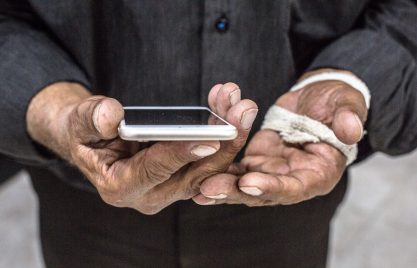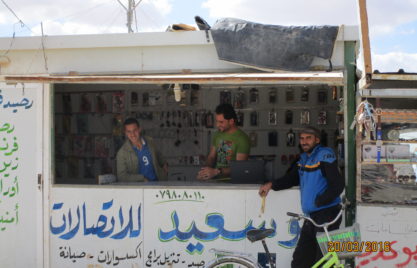The advantages of savings, especially for the poor are clear and well known, nevertheless it is obvious that the savings needs of the poor are not being met adequately by commercial banks. What is needed then to bridge the gap and what is the role of central banks?
Savings funds for future use guarantee the poor with safeness and help them to be prepared for crises. The advantages of savings, especially for the poor are well known and still, in 2014 only 56 percent of adults around the world contributed to savings or set aside money in the past 12 months (Global Findex Database). It is obvious that the savings needs of the poor are not being met adequately by commercial banks. Therefore government authorities should undertake even more effort to understand the nature and level of demand for micro and small savings services, as well as the type of products that fit and serve best the low income market.
Microfinance institutions (MFIs) have been looking so far rather from a more credit perspective. They could also focus on the unmet saving needs of the poor. Taking deposits, however, means that certain requirements have to be considered. Requirements for both the microfinance sector and the supervisory authority.
Focusing on MFIs, requirements start in governance and go beyond to management, including technical skills and experience. There is a need for a qualified team handling deposit taking activities and risk management associated with loan portfolios. This is important as this directly affects depositors. A sufficient and robust MIS is also needed, next to a strong internal audit system. Last but not least, administrative and physical requirements at the head office, as well as branches are crucial.
Regulatory and supervisory authority should have adequate instructions and capabilities to monitor the sector with prudential approach. It is important to clarify that the two models, non-deposit taking and deposit-taking MFIs can run side by side. Those who choose to mobilize deposits should have an extra permission from the central bank. Moreover, they should apply extra requirements and eventually be supervised in prudential approach. Nevertheless the door can remain open for small MFIs without the intention to collect deposits, applying a light non-prudential approach to them. In all cases, any new activities designed and produced by an MFI should first get the permission and approval of the central bank.
The central bank has a prudential regulation when it is specifically aiming at protecting the financial system as a whole as well as protecting the safety of small deposits in individual institutions.
When a deposit-taking MFI becomes insolvent, it cannot repay its depositors, and—if it is a large institution—its failure could undermine public confidence which could lead the banking system to face the risk of a run on deposits. Therefore, prudential regulation involves the government in overseeing the financial soundness of the regulated institutions: such regulation aims at ensuring that licensed institutions remain solvent or stop collecting deposits if they become insolvent.
The objective of prudential regulation is to:
1- Protect the country’s financial system by preventing the failure of one institution from leading to the failure of others,
2- Protect small depositors who are not well positioned to monitor the institution’s financial soundness themselves.
A wider mandate in terms of prudential regulation and supervision of microfinance that includes future deposit-taking MFIs would require adjustments to Capital Adequacy Requirements/ CAR, liquidity requirements, more regular and rigid on-site inspections, as well as a sector-wide scheme to insure deposits.
Actually deposit-taking MFIs bridge the gap between banks and MFIs, cover a wider spectrum of clients and at the same time provide services usually offered by banks but this time to low income populations. Furthermore it increases the awareness and spreads a savings culture among their clients.
By Ozaina Aljundi



